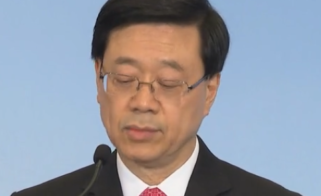The public can be excused for feeling dismayed by the government’s answers to the quest for a full retirement protection scheme. After years of anticipation, we are told to choose between two options that, regrettably, cannot address the complex issues facing a rapidly ageing society like Hong Kong’s. The government believes both proposals would require tax hikes to offer pensioners a monthly stipend of HK$3,230. In order to cover everyone regardless of whether they are rich or poor, as proposed by welfare expert Professor Nelson Chow Wing-sun, salaries and profits taxes may have to rise significantly to foot a staggering bill of HK$2.395 trillion in the next 50 years.
The government’s option would cost one-tenth of that, at around HK$255.5 billion, but about three in four will miss out under a proposed threshold to exclude people with assets of HK$80,000 or more. Taxpayers and companies would still have to fork out more, though not on the same scale as in the academic’s proposal.
If the public feels caught between a rock and a hard place, it is because neither option is desirable. Laudable as it, Chow’s blueprint raises concerns over the financial burden in the long run. Assuming the government’s projection is accurate, it would require a 4.2 percentage point rise in profits tax, or an 8.3 percentage point increase in salaries tax, to meet the costs of Chow’s plan.
Given that the workforce and tax revenue are to shrink as the elderly population swells, sustainability is a valid concern. The alternative is not reassuring, either. While the public purse will be less strained, it confuses the concept of retirement protection with poverty alleviation. It is essentially creating another safety net for the needy under the current welfare system.
That the government is willing to broach the thorny issue demonstrates its commitment, according to Chief Secretary Carrie Lam Cheng Yuet-ngor. But she also conceded that the way forward remained unclear. If the war of words between Lam and Chow is any reference, the prospect of forging a consensus is not promising. The clamour for a universal pension scheme owes much to the inadequacies in the mandatory provident fund scheme, which was introduced in the wake of the last citywide debate on the issue in the 1990s.
The question is simple: do we want a universal pension scheme, and if so, how should we go about it? Perhaps we should not limit the debate to the pros and cons of the two options on the table. Between a scheme that costs a fortune to benefit all and one that screens out the majority, could there be a third option?
